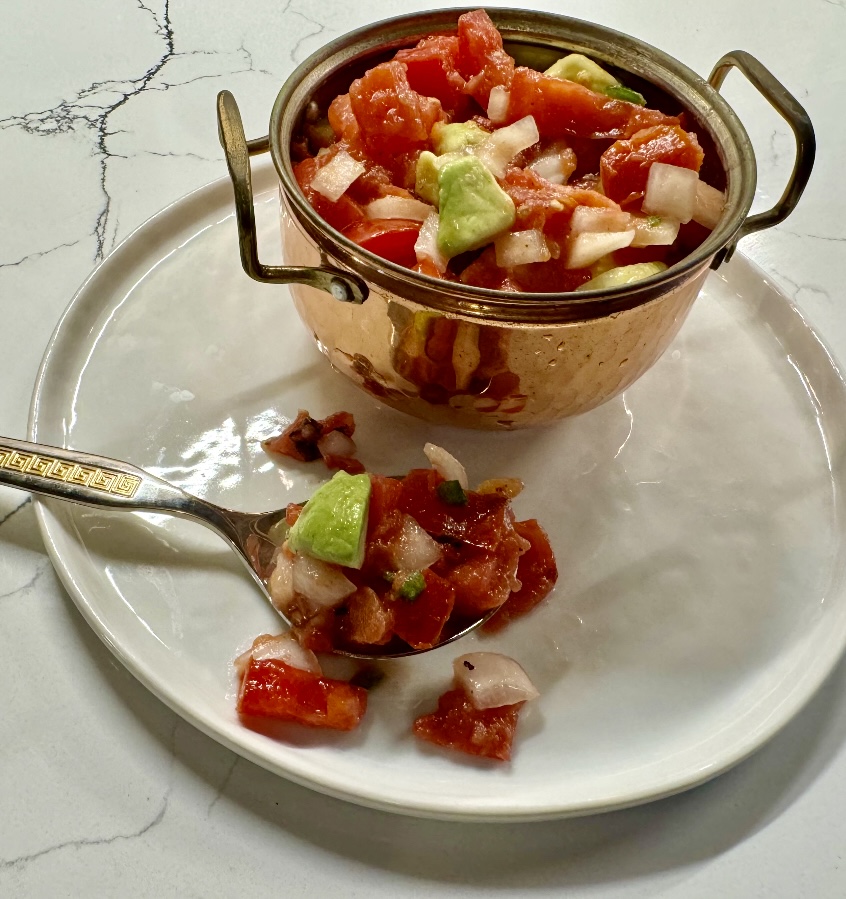
The Proven Platter – Tanzania, March 2025
To know the cuisine of Tanzania is to know Kachumbari. This refreshing salad is a staple side dish or condiment, found on most dining tables. While the basic ingredients include tomatoes, onions, an acid (usually lime juice), and heat (such as chili peppers or Scotch bonnets), variations abound. Some prepare it with sliced tomatoes, while others prefer a diced preparation – choose whichever suits your needs.
One of the great things about this dish is its adaptability. Common optional ingredients include avocado, cucumber, and cilantro, adding different textures and flavors. For our version, we incorporated fire-roasted diced tomatoes to enhance the depth of flavor – an excellent option when fresh tomatoes aren’t at their best. We also added ground cumin, a spice frequently used in Tanzanian cuisine, to bring a warm, earthy note.
This dish comes together quickly with simple, everyday ingredients. For our taste test, we served it alongside rotisserie chicken, homemade flatbread with dill yogurt sauce, and caramelized shallots. The combination was a total win! We hope you enjoy this version of Kachumbari as much as we did.
Kachumbari
Ingredients:
8 plum tomatoes, diced
½ sweet onion, diced
1 cucumber, diced
Juice of 1 small lemon
Juice of 1 small lime
½ jalapeño, seeded and finely diced
1 can (14.5 ounces) fire-roasted diced tomatoes, drained (substitute fresh tomatoes if in season)
2 teaspoons kosher salt
1 teaspoon ground cumin
Instructions:
Soak the diced onion in warm water for 5 minutes to mellow its flavor. Drain and set aside.
In a large bowl, combine the tomatoes, cucumber, jalapeño, and drained fire-roasted tomatoes. Add the lemon and lime juice, salt, and cumin, stirring gently to combine. Fold in the drained onion. Taste and adjust seasoning if needed.
Serve immediately or let it sit for 15-20 minutes to allow the flavors to meld.
Storage Tip: Kachumbari is best enjoyed fresh but can be refrigerated for up to a day. If storing, drain excess liquid before serving.
Recipe credit: Kristina Skepton and Terri Tucker
